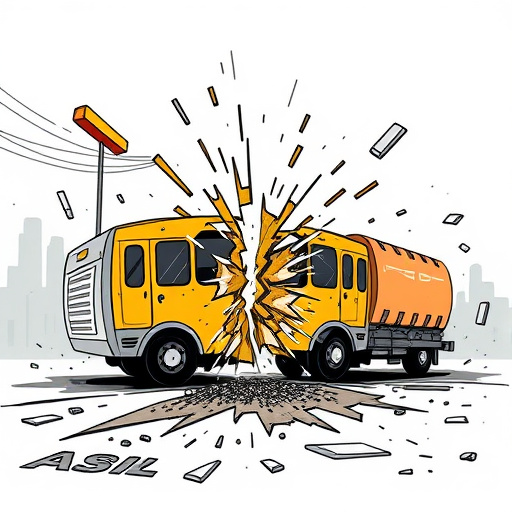Automotive repair businesses must adhere to stringent federal laws for hazardous waste management, avoiding penalties and fostering safety culture. Comprehensive plans involving identification, categorization, and on-site management of hazardous materials are essential. Safe disposal strategies, including proper labeling, storage, transportation, and specialized facilities, mitigate environmental and health risks, aligning with legal requirements.
In today’s world, effective hazardous waste management is not just a best practice—it’s a legal requirement. Federal laws mandate comprehensive hazardous waste management plans to protect public health and the environment from potential dangers. This article delves into three critical components: understanding relevant laws and regulations, developing robust management strategies, and implementing safe disposal and response tactics. By adhering to these guidelines, businesses can ensure compliance and minimize environmental impact.
- Understanding Hazardous Waste Laws and Regulations
- Developing Comprehensive Management Plans
- Implementing Safe Disposal and Response Strategies
Understanding Hazardous Waste Laws and Regulations

Understanding Hazardous Waste Laws and Regulations is paramount for any industry dealing with potentially dangerous materials. Businesses, especially those in sectors like automotive collision repair or luxury vehicle repair, must navigate a complex web of federal laws designed to protect both workers and the environment from exposure to hazardous substances. Failure to comply can result in severe penalties and legal repercussions.
These regulations are multifaceted, covering everything from proper containment and disposal methods to detailed tracking and documentation. For instance, in the event of a fender bender involving a vehicle with leaking fluids, immediate and correct handling protocols must be followed. This includes containing the spill, identifying the hazardous substances involved, and ensuring safe transportation to designated disposal facilities. Compliance is not just about avoiding fines; it’s about fostering a culture of safety and environmental stewardship within these industries.
Developing Comprehensive Management Plans

Developing comprehensive hazardous waste management plans is a critical step for any business or organization dealing with potentially dangerous materials. Federal laws mandate specific guidelines to ensure safe handling, treatment, storage, and disposal of hazardous substances. These regulations are designed to protect human health and the environment from potential risks associated with toxic chemicals.
A well-structured plan should include detailed procedures for identifying, categorizing, and managing various types of hazardous waste generated on-site. This may involve implementing specialized practices such as auto glass repair or vehicle dent repair processes that safely contain and process these materials. By integrating sustainable practices, businesses can contribute to a greener environment while adhering to legal requirements.
Implementing Safe Disposal and Response Strategies

Implementing safe disposal and response strategies is a critical aspect of hazardous waste management, as it ensures that potentially harmful materials are handled and disposed of responsibly. Federal laws mandate strict protocols for managing these wastes to protect human health and the environment. This includes proper labeling, storage, and transportation of hazardous substances to prevent leaks or spills. For instance, auto body repair shops dealing with old car batteries or dent repair facilities working with certain paints must adhere to specific guidelines.
These strategies involve employing specialized equipment and trained personnel for safe disposal methods like incineration or containment facilities. In the event of a spill or accidental release, response plans should be in place to mitigate the damage. Just as one wouldn’t attempt fender repair without proper tools, hazardous waste management requires a set of skills and knowledge to address potential risks effectively.
Effective hazardous waste management is not just a legal requirement; it’s a vital step towards protecting our environment and public health. By understanding federal laws, developing robust management plans, and implementing safe disposal practices, businesses can play a crucial role in mitigating risks and ensuring a sustainable future. A comprehensive approach to hazardous waste management is essential for navigating this complex landscape, fostering a healthier planet, and adhering to stringent legal standards.














